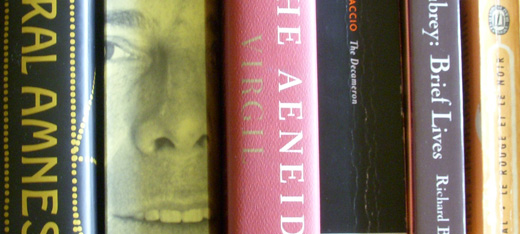Tuesday
Morning Read
It’s too hot to read Aubrey. Ditto Merrill — or verse of any kind. So:
¶ Decameron X, v disappoints on two fronts. First, it depends on a magic act, which is very unusual in this collection. A magician causes a garden to bloom in Dolomitic Friuli in January. He’s hired to do this by a grandee who wants to win the affection of a married woman; she has proposed the stunt thinking it to be impossible. The moral, spelled out by her husband, is “don’t barter” with would-be lovers. If I were more industrious, I would enumerate the other stories in the Decameron that flaunt this precept. IX, i comes straight to mind.
Second, the orgy of liberality at the end of X, v is unpersuasively excessive. Why, the magician won’t even take his fee!
¶ Clive James on Duke Ellington: It Don’t Mean a Thing If It Ain’t Got That Swing. James shows that Ellington didn’t follow this advice himself, but kept trying to write earnest, “symphonic” jazz. About Coltrane, James is almost savage.
There is not a phrase that asks to be remembered except as a lesion to the inner ear, and the only purpose of the repetitions is to prove that what might have been charitably dismissed as an accident was actually meant. Shapelessness and incoherence are treated as ideals. Above all, and beyond all, there is no end to it. There is no reason except imminent death for the cacophonous parade to stop, a fact which steadily confirms the listener’s impression that there was no reason for it to start.
James astutely notes that the Twentieth-Century’s general disapproval of pleasing art was intensified in the world of jazz, and given great political force, by the determination of black musicians not to be condescended to by grateful audiences.

